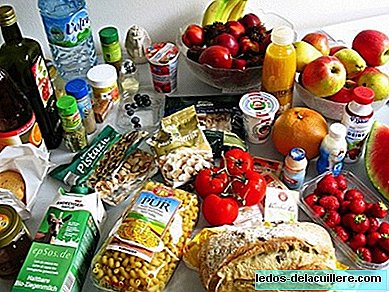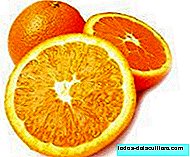
Foods are not the same as nutrients, although many times we talk about them interchangeably. An article published in Fundació Roger Torné by the family doctor Esther Martín clarifies that although we know the pyramid (or the wheel) of food, we do not usually understand the basic reasons for including one or other foods in the recommendations for healthy eating.
Food is the solid or liquid products we eat (milk, bread, tomato, cheese), from which the body gets the nutrients it needs to live, expelling everything that is not usable. Instead, when we talk about nutrients, we refer to the chemical compounds that contain food and that provide our cells with everything they need to live.

Nutrients and their functions
Nutrients meet three distinct functions in our body:
Function energetic: provide energy to our body for proper cell functioning. Whether for activities as basic as breathing, sleeping or resting, to more intense activities such as running, jumping or dancing, energy is necessary for the cells of our body. The fundamental nutrients to cover this function are sugars and fats (they act as an energy reserve).
Function plastic or repairing: they provide us with the necessary material elements to form the structure of our organism, during growth and in its renewal processes. This function is fundamentally played by proteins and, to a lesser extent, minerals.
Function regulator: By controlling certain chemical reactions that occur in cells for proper functioning. Vitamins and minerals are the main responsible for this function in our body.

Foods consist of the following nutrients: protein (formed by amino acids), the carbohydrates (also known as carbohydrates or sugars) and The fats (or lipids), these are the macronutrients since we consume them in large quantities and provide much of the energy we need.
Vitamins and minerals constitute the group called micronutrients, that is compounds that our body needs in small quantities. Other nutrients are the water and fiber.
So what relationship do foods have with the nutrients we need?
Let's look at it like this, does all food serve the same? Of course not because each of them It consists of different nutrients (with different functions). The benefits they will give us will be different depending on the type of nutrients and the proportion in which they are presented.
For example, meat and fish are rich in protein, They help regenerate our body, promoting tissue growth and renewal. Our body needs protein from the food we eat to strengthen and maintain bones, muscles and skin. And if that were not enough, the meat proteins are complete. It is important to eat protein (animals or vegetables) daily, since they are not stored as fats do.
What about eggs, dairy and oils? Well, they are high in fat, and with your help we keep constant body temperature; The former are also sources of protein. And all participate in the absorption of certain types of vitamins, and are a good system for storing energy.

Vegetables and vegetables have many vitamins, minerals and antioxidants, so they help regulate the functions of our organs; too they have a large presence in fibers that facilitate intestinal transit.
Sugar, cereals or legumes, provide lots of energy for daily activities; especially cereals are necessary daily because they provide complex carbohydrates, and also provide vitamins (of groups B and E).
Neither excesses nor defects are good

Each nutrient fulfills specific functions that help maintain the proper functioning of our body. However, excessive consumption or defect of each of them can also cause significant health problems
As examples the exaggerated consumption of fats can lead to certain cardiovascular problems, and excess carbohydrates is associated with obesity; On the other hand, the deficit of vitamins can lead to deficiency diseases, and their excess health problems such as poisoning. It is also known that excess protein can lead to liver function problems, and its deficit to muscle weakness.
Finally, Esther Martín clarifies that although eating balanced is not difficultIt does require a willingness to experience the advantages over our health and well-being. To take into account some simple keys to get it:
Consume one variety of foods, which include vegetables, fruits and products with whole grains.
Eat lean meats, poultry, fish, peas and dairy products.
Drink a lot of water.
Consume moderately salt, sugar and saturated fat.
They are simple recommendations and apply in our family that will allow us to adopt healthier eating and will serve as protection against future diseases.
Images | epSos.de, Trisha, Beth Rankin, Andrea Arden, Search Engine People Blog Source | Roger Torné Foundation in Peques and More | Decalogue for healthier infant feeding, The importance of vitamins in the development of children, Proteins are necessary for growth, but must be combined with other nutrients



![[Christmas Special]: A tree full of desires](https://img.ledos-delacuillere.com/img/bebesy3-2019/un-rbol-lleno-de-deseos.jpg)








